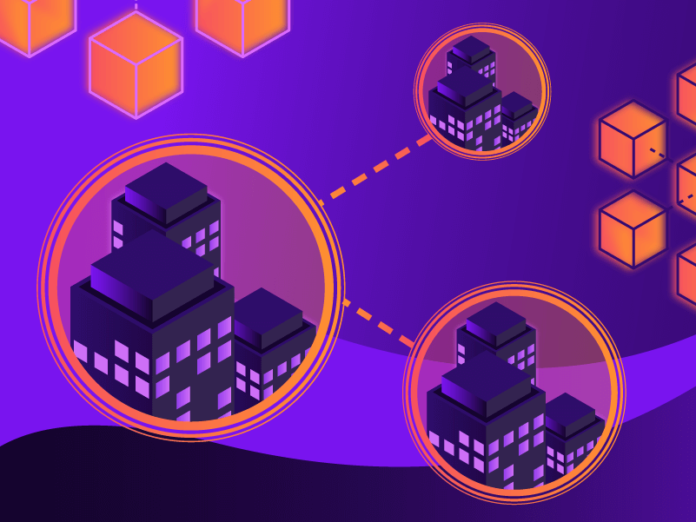The value of bitcoin and other cryptocurrencies is rising quickly. Businesses increasingly rely on blockchain technology, which underpins Bitcoin, to keep records and inform decisions. The real estate industry, particularly the market for virtual properties, is exhibiting similar trends.
One example of how blockchain technology and cryptocurrencies are changing the global economy is the emergence of a Decentralized Finance Development Company. Continue reading to find out more about how DeFi functions. DeFi will then alter the management, use, and occupancy of buildings for real estate.
Define DeFi in Detail
The term “decentralized finance” (or “DeFi”) refers to a group of blockchain-based financial services that utilize algorithmic decision-making.
A decentralized finance development company lacks a management team, unlike conventional banks. These transactions do not involve any actual individuals. A computer-encoded smart contract is used to manage a DeFi service. This smart contract’s objective is to process payments, distribute funds, and react to fluctuating market conditions.
When and how did DeFi begin?
For decades, technology has made the work of finance specialists easier. The country has embraced innovations like the stock exchange’s computerization. The finance sector adopted instant messaging services in the 1980s. Financial service professionals have streamlined their procedures over time.
No matter how sophisticated their technological foundation is, customers of traditional banks will always be at risk. Hours of waiting are common when contacting a bank’s customer service division. Using a conventional bank has many drawbacks, such as slow response times.
Here is when DeFi becomes useful.
The Rise of Bitcoin and the Future of the DeFi
Bitcoin market developments enabled the launch of DeFi. The introduction of Bitcoin in 2009 increased the likelihood of a completely new monetary system. Due to the decentralized nature of the blockchain technology on which Bitcoin is based, it can be used globally. Blockchain technology ensures that any third party can track and validate all Bitcoin transactions. Blockchain, the underlying technology of bitcoin, was the impetus for the development of DeFi.
The cryptocurrency community, including developers, had an epiphany. The world as we know it might change if a transparent financial system existed that did not rely on banks. These programmers utilized blockchain technology and smart contracts to create the DeFi network, which is financially independent.
How does DeFi work?
Defi development services work by obtaining data from blockchains and processing it by the specifications of the smart contract.
Users have access to data kept in a blockchain database and can view, verify, and use it. Blockchains use nodes, which are computer networks, to share information. The distributed ledger’s node network ensures that all data is permanently stored and cannot be changed. When information is stored on a blockchain, it can never be altered again.
On a blockchain, financial transaction records can be kept alongside data about logistics. Furthermore, data held on a blockchain is always accessible. This gets rid of the problems with manual methods.
Computer programs known as “smart contracts” carry out predetermined actions when specific monetary conditions are satisfied. Smart contracts that are automated serve the same purposes as vending machines. The money is accepted by vending machines, which promptly dispense beverages in return. Smart contracts are built on the idea of impersonal economic interaction.
What are some DeFi examples?
The decentralized currency exchange Uniswap is one of the most well-known DeFi companies. Using Uniswap, buyers and sellers of bitcoin can connect, and lenders can find borrowers while earning interest. The primary advantage is that there is no need for an intermediary such as a broker or bank to facilitate communication between borrowers and lenders. Aave and Compound, two additional DeFi protocols, serve the same purpose.
DeFi’s Yearn Finance is also a useful resource. Yearn excels at DeFi Yield farming, an innovative method for generating bitcoin interest. Protocols enable Yearn to automate the buying and selling of multiple cryptocurrencies.
Kyber Network’s primary objective is to facilitate the exchange of bitcoin between various systems and applications. Kyber Network promotes itself as a developer-friendly “bridging” protocol.
A Decentralized Finance Development Company created RealT to serve the real estate industry better. Real allows investors to trade on decentralized real estate markets.
DeFi Affects
All managers and owners in the industry are interested in the potential effects of DeFi on the real estate market.
The following list includes three new uses of DeFi in the real estate sector:
- Tokenizing Assets
In 2020, real estate valued at $690 million was tokenized. This amount increased to $14,300,000,000 in 2021. To participate in one of the fascinating new trends in the real estate market, tokenize your properties.
Using DeFi’s smart contracts, tokenization of assets is possible. A token represents complete company ownership. Tokens are fractional interests in anything from a fleet of luxury automobiles to prime real estate.
- Mortgages and loans handled by DeFi
The complete replacement of the current financial system is DeFi’s ultimate goal. Mortgage loans and other loans are not exempt. Banks will only use the one-week-long, onerous verification procedures they currently employ. Use DeFi to manage real estate finances instead of Excel. A decentralized finance development company can help you quickly get a loan or mortgage.
One of the many benefits of using DeFi for loans and mortgages is tokenization. Imagine getting a mortgage from a sizable bank to buy a house. As a result, the asset’s worth has increased. Traditional bankers also forecasted low-profit potential. You could not make money by breaking down and selling the property’s parts.
Takeaways
DeFi is altering how individuals utilize and perceive finance, especially in the real estate industry.
DeFi is superior to conventional real estate financing methods in various ways. In contrast to a centralized financial system, the services of a decentralized finance development company excel in terms of accessibility, efficiency, and originality. These advantages also promote adaptability and transparency in the real estate industry on behalf of tenants, property managers, and property owners.





